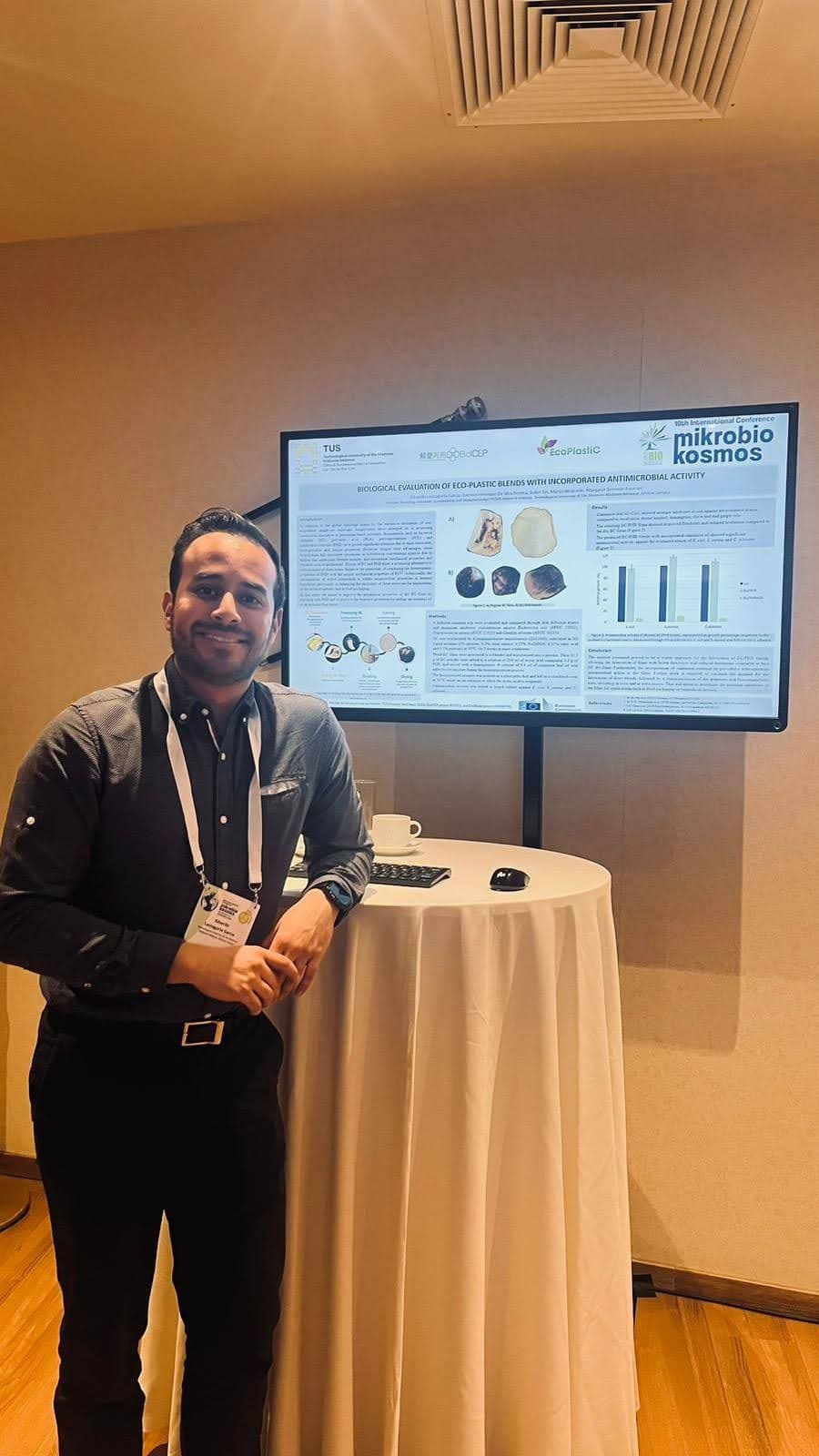EcoPlastiC at MIKROBIOKOSMOS 2023

The 10th International Conference “MIKROBIOKOSMOS” – All microbes for a sustainable future was organized by the Hellenic Scientific Society MIKROBIOKOSMOS at Divani Palace in Larissa (Greece) in the period from 30 November until 02 December 2023.
The Abstract Book is available here and there were 60 oral presentations and 170 poster presentations as part of the conference, from the research topics of Agriculture/Fisheries, Emerging approaches in Microbiology, Environment, Systems Biology, One health/omics, Food/Nutrition, Bioengineering/Biotechnology, as well as 9 plenary lectures:
- Prof. Lisa Stein – “Integrating methane and nitrogen metabolism to mitigate greenhouse gases”
- Prof. Angel Medina Vaya – “Making fungi travel through time to predict future mycotoxins contamination in food commodities”
- Prof. Kevin O’Connor – “The Bioeconomy – An economic social and environmental opportunity for biorefineries”
- Dr. Angelique Gobet – “Exploring the limits of metabarcoding marine microbial communities”
- Dr. Jasmina Nikodinovic-Runic – “Waste to value: From bugs to drugs”
- Dr. Sharon Zytynska – “Unravelling beneficial multi-species interactions for insect pest control: from the soil to the leaf”
- Prof. Miguel Luis Rodriguez-R. – “Studying genomic adaptations under the light of microbial ecology”
- Dr. Federico Aulenta – “Electrobioremediation: a greener and sustainable approach for the clean-up of contaminated sites”
- Prof. József Baranyi – “Big Data methods, results, and their (mis-)use in food and nutrition sciences”
Within the Session on BIOTECHNOLOGY, there was 1 plenary lecture and 2 poster presentations presenting the results from the EcoPlastiC project:
- Plenary Lecture “Waste to value: From bugs to drugs” by Jasmina Nikodinovic-Runic (IMGGE).
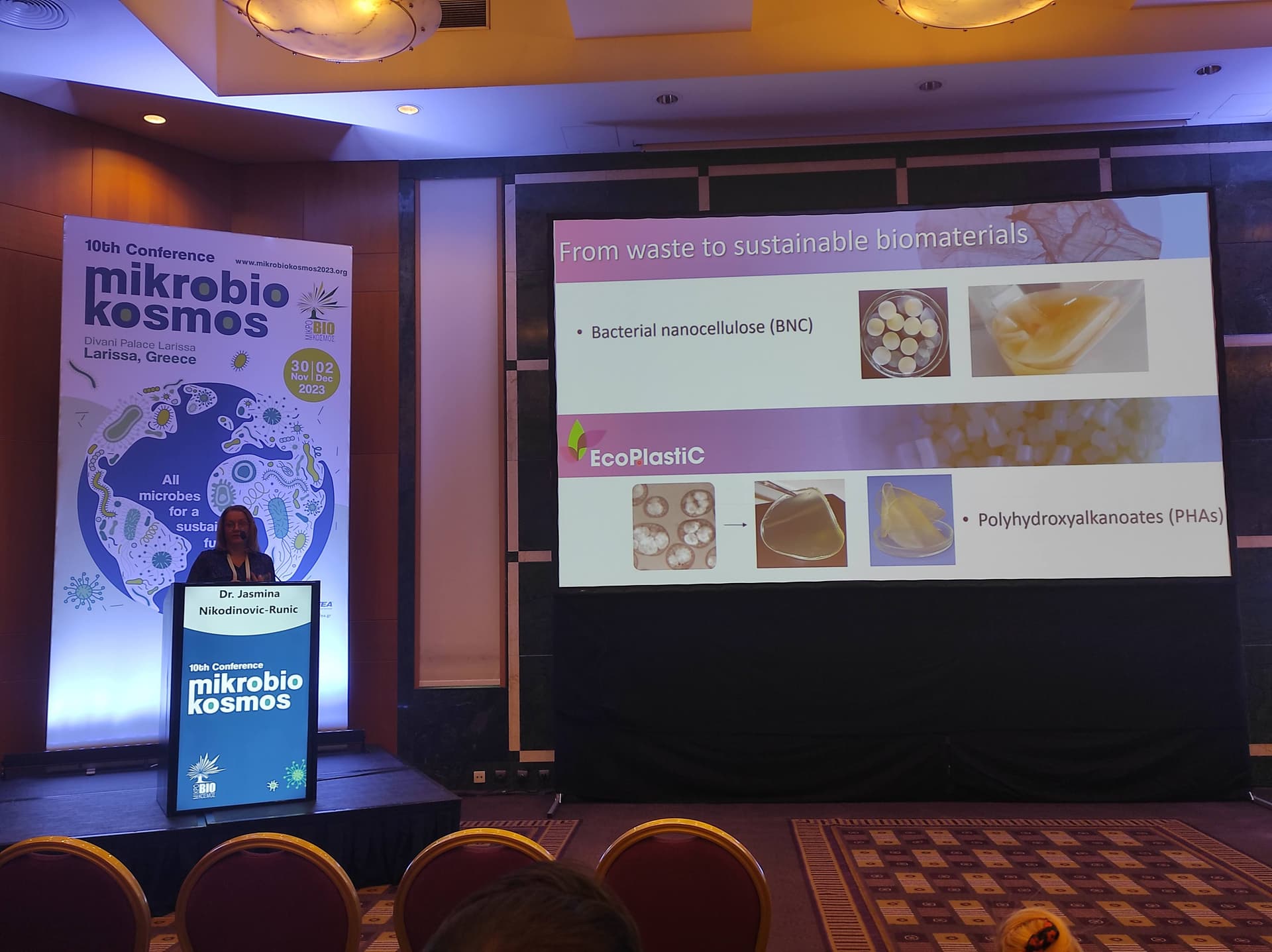
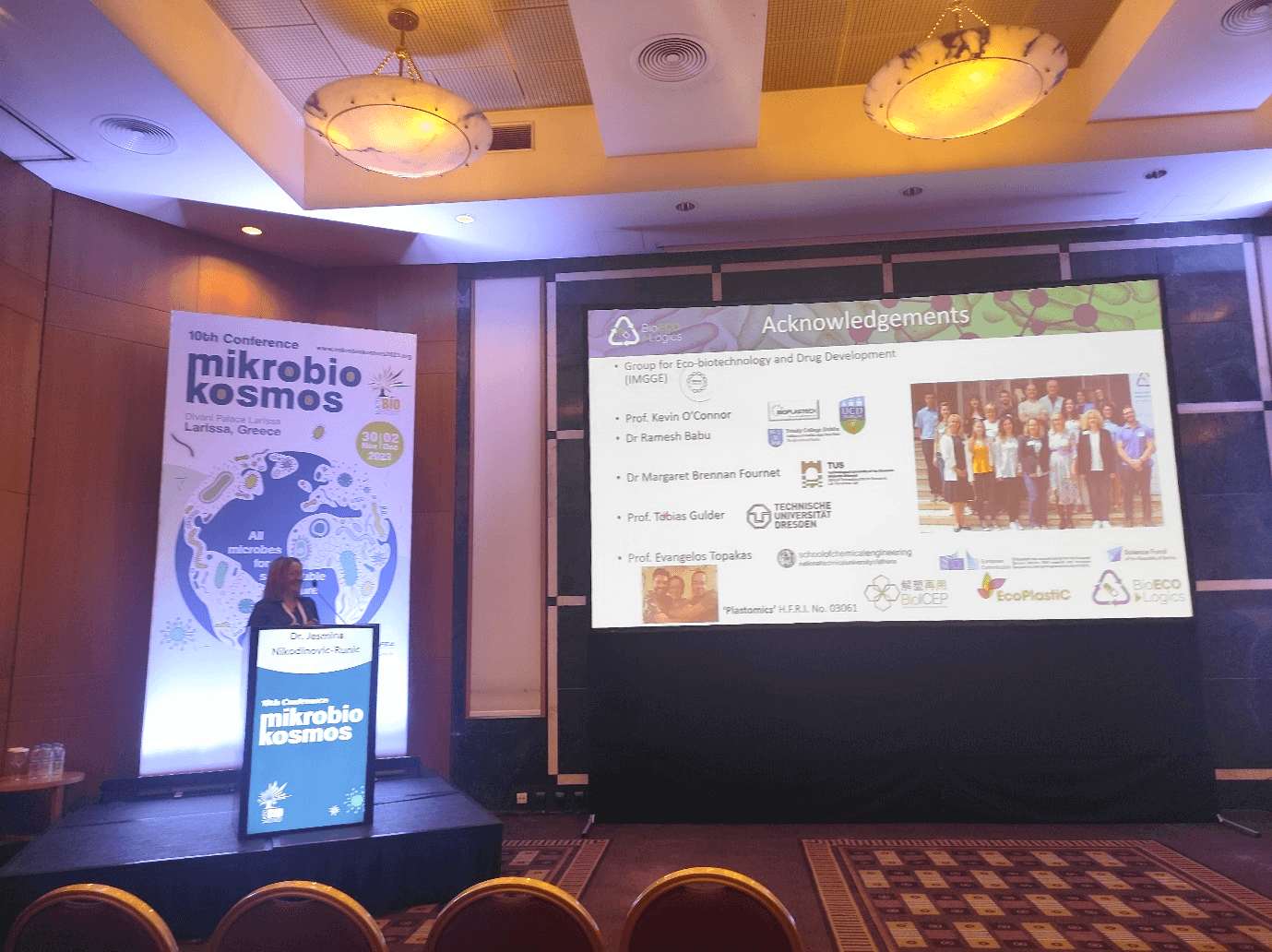
- Poster PP077 “Bioconversion of unrecyclable PET waste into biodegradable polyhyoxyalkanoates by a newly isolated Delftia sp. strain” by Maria Batista (NOVA); with co-authors Patrícia Concórdio-Reis (NOVA), Helena Koninckx (AVE), Aleksandra Bogdan (AVE), Lutgart Stragier (AVE), Olivia A. Attallah (TUS), Margaret Brennan Fournet (TUS), Cristiana A.V. Torres (NOVA), Maria A. M. Reis (NOVA), Filomena Freitas (NOVA).
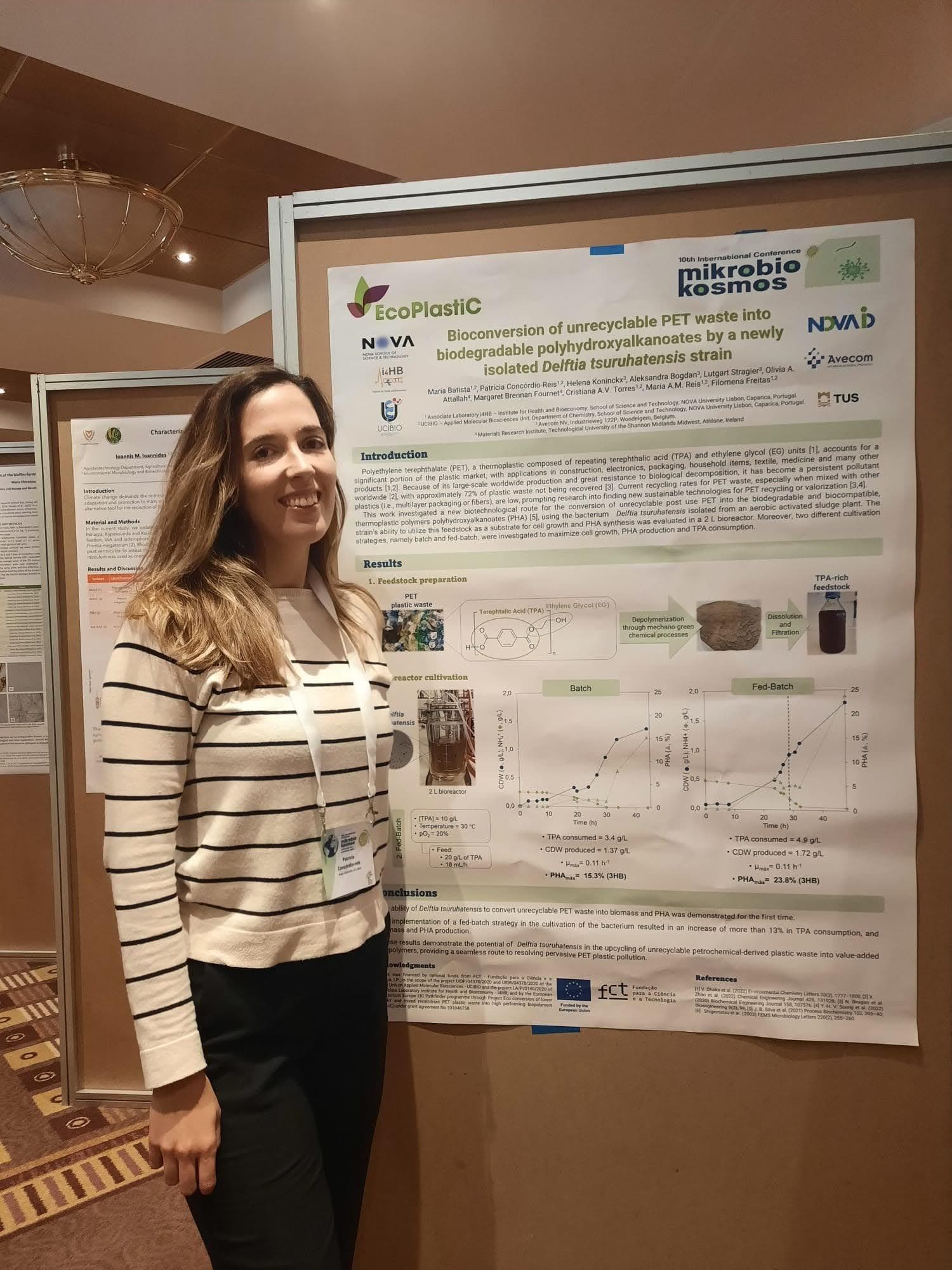
- Poster PP099 “Conversion of mixed plastic waste containing PET into biopolymer bacterial nanocellulose” by Marijana Ponjavic (IMGGE); with co-authors Sanja Jeremic (IMGGE), Ivana Malagurski (IMGGE), Ramesh P. Babu (TCD), Divya Rajasekaran (TCD), Evangelos Topakas (NTUA), Jasmina Nikodinovic-Runic (IMGGE).
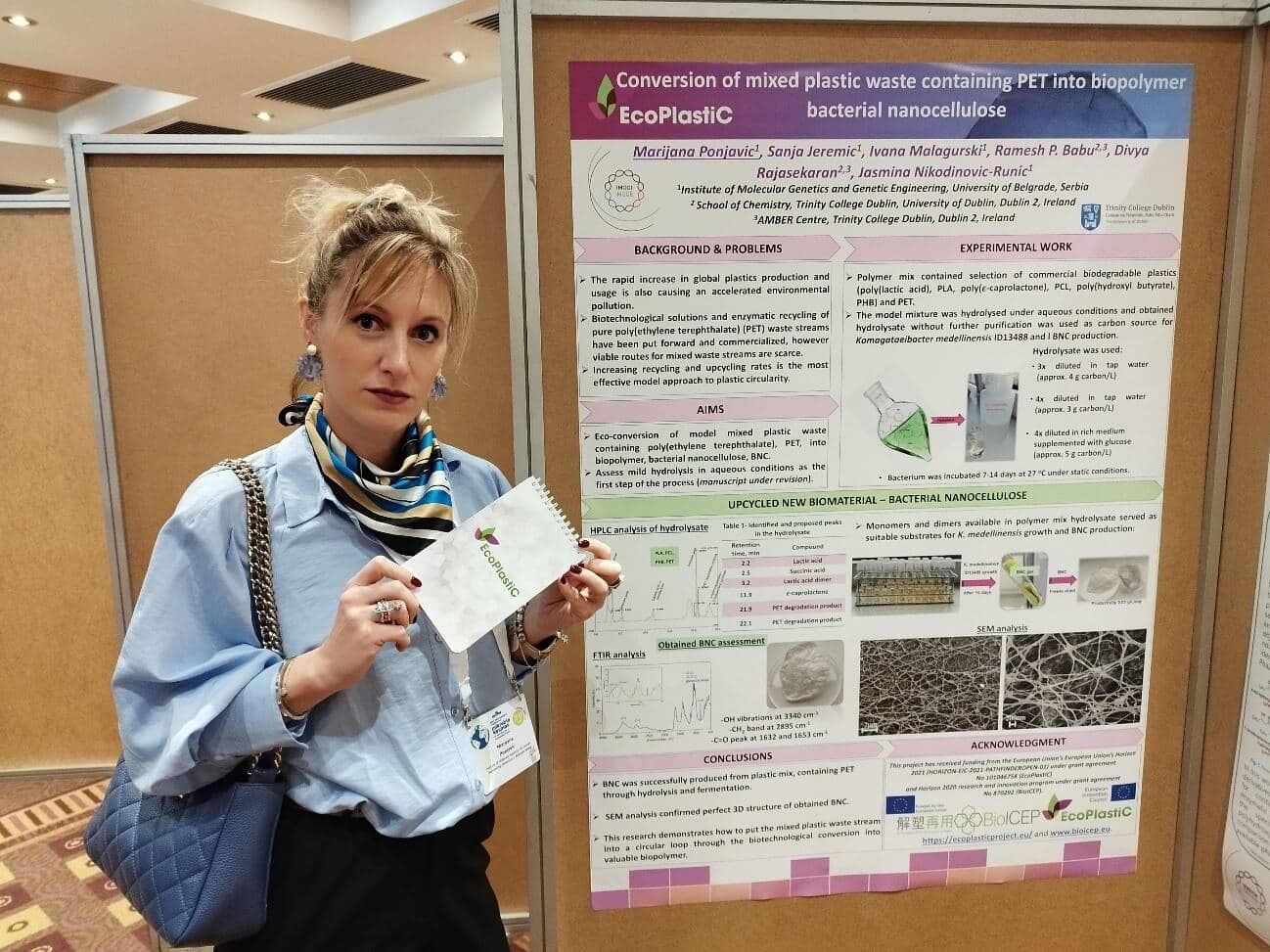
Within the Session on the ENVIRONMENT, there were 2 poster presentations presenting the results from the EcoPlastiC project:
- Poster PP051 “Exploring the enzymatic ability of strains isolated from plastic polluted environments for enhancing synthetic and natural biopolymers’ biodegradation”by Diana Alicia Garza Herrera (TUS); with co-authors Marija Mojicevic (TUS), Jasmina Nikodinovic-Runic (IMGGE), Margaret Brennan Fournet (TUS), Chaitra Venkatesh (TUS).
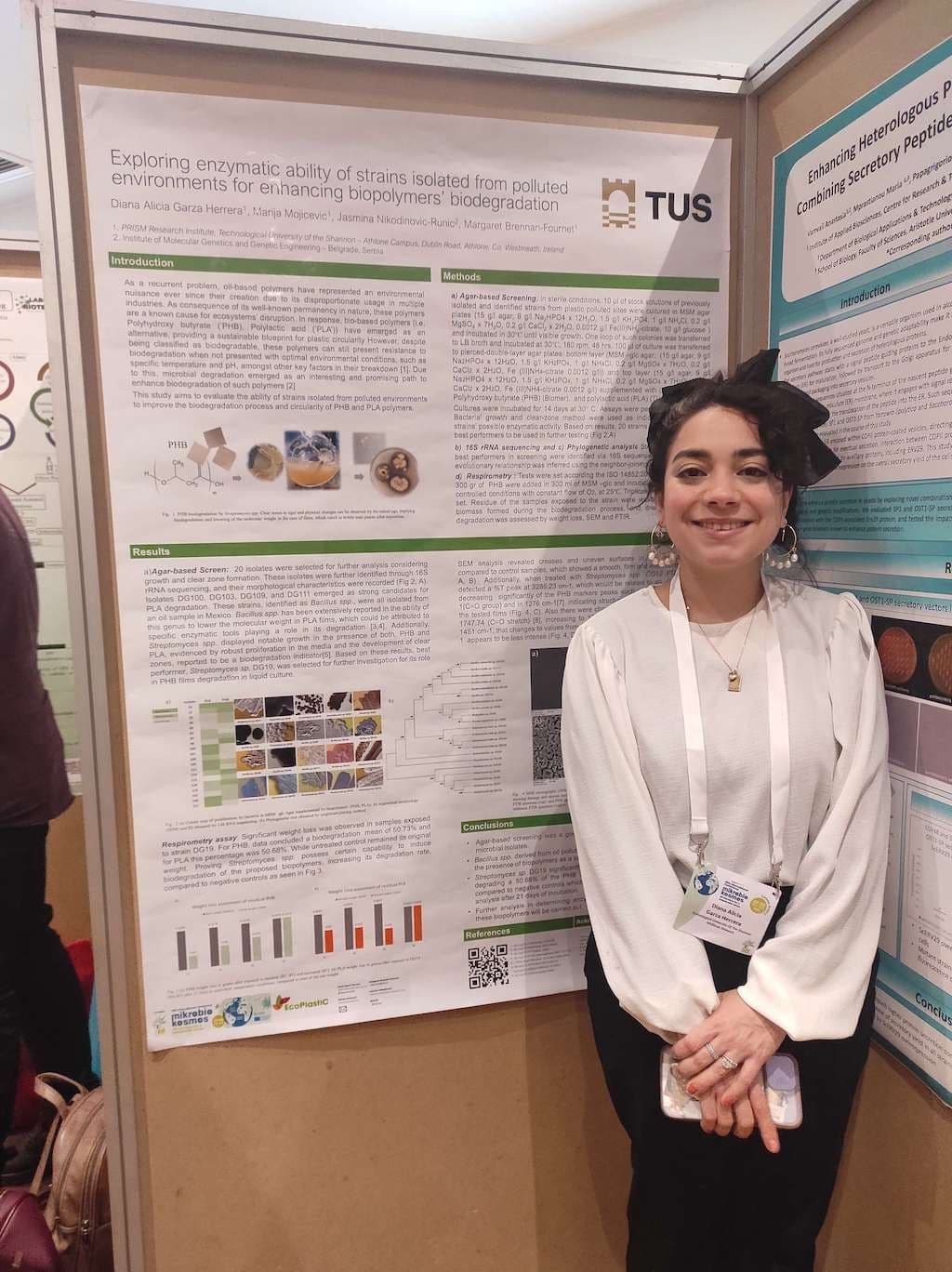
- Poster PP056 “Biocompatible eco-plastic blends with enhanced antimicrobial activity by addition of essential oils” by Eduardo Lanzagorta Garcia (TUS); with co-authors Everton Henrique Da Silva Pereira (TUS), Dusan Milivojevic (IMGGE), Marija Mojicevic (TUS), Margaret Brennan Fournet (TUS).
